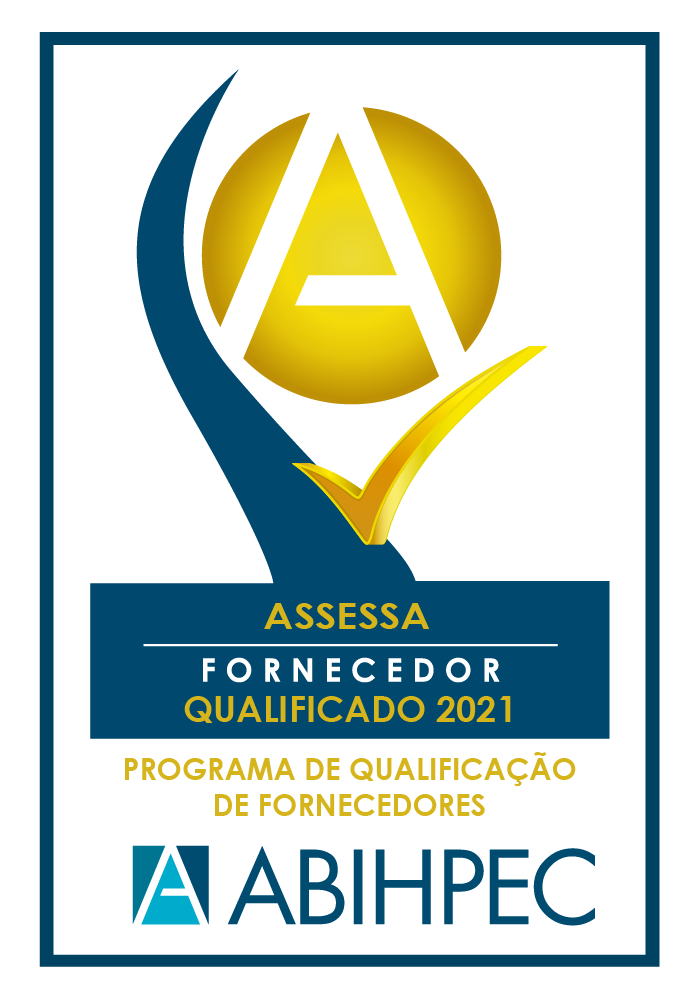CONTRIBUTOR’S COMMITMENTS TO BUSINESS
It is expected that all ASSESSA’s employees follow the guidelines of our Code of Conduct. It is your responsibility to follow it, in addition to the duties set forth in any employment contract applicable to you.
Conflicts of Interest
Conflict of interest occurs when the professional uses his or hers influence or acts in benefit of particular interests, not the interest of ASSESSA. It is the duty of each employee to avoid situations where the personal interests of each person conflict with those of the company. This section of the Code covers some of the conflicts that may arise.
Political Scenario
ASSESSA does not support, directly or indirectly, any political party or group and does not engage in national and international disputes. In compliance with this policy, do not identify the name of ASSESSA to any political cause, nor take sides in such conflicts or disputes.
Parallel Activities
To carry out the activities with excellence, greater dedication of our employees, in their roles and in new projects within the company, is required. For this, care must be taken that activities not related to the company do not affect the employee’s performance in interests of ASSESSA. Paid work outside of ASSESSA is not allowed, unless you have prior authorization from your superior. This authorization will be granted routinely if the activities do not affect the company.
Some examples of activities included in this category are writing a book or article, giving a conference, taking news or business pictures. If the parallel work is of a managerial nature, for example, in your family company, the authorization may be granted if it does not compete with the activities of ASSESSA.
Purchasing and Service Contracting Decisions
The hiring of services or purchase approvals is made through quote search. The contracting of suppliers on behalf of ASSESSA, in which you, a family member or company in which you hold a stake, have financial, material or personal interest, is not authorized. No purchasing decision should be made based on a scheme of counterparts to customers. ASSESSA reserves the right to ask its employees to decline such benefits if believied to be abusive.
Gifts and Representation
The practice of offering and receiving gifts within the company should be handled with care so that it does not influence or appear to influence business decisions and does not lead to improper favors. Therefore, do not accept gifts or representation from a client or business associate on a scale that could lead you to an unreasonable obligation towards that person. Likewise, do not use material presents, money or over-representation to influence the ASSESSA’s customers or external business associates. ASSESSA employees should not accept any payment, gift, service or benefit (whether cash or equivalent) offered by news sources or contacts. If you receive a gift of nominal value higher than one third of the current minimum wage, in a situation in which you can not refuse, you must pass it on to your boss who will donate it to a suitable charity in due course. No cash value should be accepted. Invitations to cultural and sporting events may be accepted, after manager approval, whenever they have been offered to ASSESSA in an institutional character, without exclusive recipient, as in cases of marketing actions between companies. Seasonal gifts of nominal value in the practice of local business can also be accepted.
Fraud and Corruption
ASSESSA does not tolerate illegal practices of our employees in conducting our business, always working ethically. As part of your responsibility, you should do the following:
- Familiarize yourself with legal requirements and regularization rules that have direct application to your work. This includes being aware of ASSESSA’s obligations under agreements of which it is a party;
- You can not commit acts of bribery and corruption, whether by offering / receiving money or any other benefits, to gain some improper advantage for yourself, third parties, public officials or the company.
- If you detect or suspect fraud or other illegality at work, immediately inform your superior;
- Cooperate with the requirements of the internal and external auditors, as well as internal and external lawyers of ASSESSA. Never withhold information from auditors or lawyers.
Relationship, Work Environment and Safety
ASSESSA believes that in order for its employees to be productive in their respective roles, everyone needs to feel at ease in the workplace. To ensure an environment of peace, quality, safety and respect among our employees, the following guidelines apply:
- All employees must comply with the Internal Regulation and Policies of ASSESSA.
- It is not allowed to engage in abusive, inopportune or offensive conduct in the work environment, whether verbal, physical or gestual, against colleagues, business partners or visitors.
- The employee can not carry, consume, join or remain in our premises or in external activities related to the company when altered by the effect of alcoholic beverages or any type of illicit drug or narcotics.
- It is not allowed to store or carry any kind of weapon in our premises or in external activities related to the company. Service providers who use guns as a working tool must be properly authorized, identified and technically qualified to do so.
- All employees are responsible for the preservation and care of the company’s resources and assets, whether material or intellectual, furniture, equipment or infrastructure.
- You can not waste the company’s resources, using more than necessary to carry out some activity or misappropriate the assets of the company. There is a monitoring of the individual use of assets in order to avoid theft or other improper practices inside the company.
- No employee can work or visit spaces within the company without individual protection equipment (IPE) or uniforms where their use is mandatory.
- If you identify any situation that threatens your physical integrity, or your colleagues, in the workplace, the activity should stop immediately and be reported to your superior.
Dealing with Clients
The relationship with our clients is based on trust, ethics, transparency, credibility and satisfaction, seeking to establish long-term partnerships. All the company’s professionals have the mission to help our clients reach their goals, trying to understand their expectations and seeking to achieve them.
When dealing with clients, the satisfaction and reputation of ASSESSA depends on the individual conduct of each employee, who is representing the company. This section of the Code sets out the guidelines on how to ensure that the customer is satisfied with the service provided. The guidelines are:
- Act with respect, courtesy and agility in solving customer problems.
- Promote and sell products in a fair and equal manner, complying with the law and not tolerating unfair competition practices.
- Never distort the availability, suitability, and quality of ASSESSA products, for example by making false statements about the performance of a particular ASSESSA product to be promoted or sold.
- The customer should not be obliged to take additional products and services that were not requested or be encouraged to do so by offering non-standard business conditions.
- It is not allowed to offer non-standard business conditions to encourage the customer to exclusively purchase products from ASSESSA.
- The supply to a customer should not be denied. Unless there is doubt about the intention, good standing or conflict of interest between the client and ASSESSA. Any questions, consult your superior.
- Never speak badly about the competitors of ASSESSA or its products, concentrating on promoting the qualities of our products. ASSESSA operates in a highly competitive market, but our reputation will not be improved by the defamation of our competitors.
- In all contacts with competitors avoid discussing projects, prices, costs, product plans, market research and customers.
Dealing with information
We know that dialogue and the exchange of information between employees is fundamental for the evolution of our business. Thus, throughout their career within the company, employees have access various information from ASSESSA and its stakeholders. However, we also understand that it’s necessary to control who has each information, avoiding the misuse of information that can cause damage to our company.
Confidential information
A lot of the information is owned by ASSESSA or other companies. It is imperative that confidentiality and ownership of information be respected. The professionals of ASSESSA are committed not to give away information of the own company, of suppliers, clients and partners, that are privileged or confidential.
Thus, our employees should follow the following points:
- Consider all information that is not in the public domain as being confidential. Confidential information includes, but is not limited to, information on product research and development, market research, competition analysis, financial information, administrative changes, information related to ASSESSA and other companies, such as customer credit information , and others.
- One can not, under any circumstances, use confidential or privileged information for their own benefit or that of family members, friends or any interested party, as provided for in article 13 of CVM 358/2002. This includes gaining advantages in buying, selling, exchanging or negotiating.
- Never mention the name ASSESSA in conversations involving confidential information in public places, where it can be heard by third parties, or on social networks. Thus, there is no possibility for any third party to obtain and use internal information to obtain some sort of advantage. If this happens, those involved will be subject to civil and criminal penalties.
- You may not erase or destroy information produced in the course of your duties. The data produced by our employees in the conduct of our business are assets of ASSESSA. In case of termination, you should forward your corporate information to your manager.
- In no way misuse confidential information concerning ASSESSA, or any other company. That is, not to reveal such information outside the company. Ensure that confidential information is not released to the press. Improper exposure is considered a reason for dismissal.
These commitments are maintained after the end of your employment contract with ASSESSA.
Intellectual Property
Intellectual property is an intangible and strategic asset to the company, applying to any material you create throughout your career in the company. Trademarks, products, processes, innovations, improvements, projects, documents, financial, commercial or market information or any other non-material activity developed in the company, or by the contracting of it, are understood as intellectual property.
All property rights relating to assets of intellectual property that may be created, directly or indirectly by ASSESSA employees even if their functions are not related to the development of research or inventions, are the exclusive property of the company and must be treated as confidential information.
These information items may also be subjected to confidentiality obligations to third parties that restrict the use, information dissemination and internal distribution by ASSESSA.
Attitude towards the media
The media and the community are important links with ASSESSA’s internal and external stakeholders, including employees, current and potential customers, and partners. What is said or written about ASSESSA can affect your reputation in a positive or negative way.
If an employee is considered an expert in a specific area of business or industry, and there is any interest in transmitting information via texts, photos and videos, he or she must inform his or her boss. When publicating news, whether technical information or other matters, you must ensure that under no circumstances will the suspicion of bias on the part of ASSESSA arise.
All media inquiries must be forwarded, mediated, coordinated and monitored by the Board of Directors, with press contact being restricted to the Board of Directors of ASSESSA.
Electronic Communication
O Internet access and the use of telephone, e-mail, software, hardwares, pen drives, external disks, cloud storage, CD / DVD and any other electronic system are means made available by the company for professional use, allowing more efficient performance conditions in your duties.
According to Brazilian law, ASSESSA is responsible for the acts of its professionals and expects them to use these means with discernment, respecting the internal policies of the company, not creating any unnecessary risk. All information written or stored in electronic media is property of ASSESSA and may be monitored, with no guarantee of privacy or confidentiality.
All messages should be sent keeping in mind that at some point in the future they may be examined in public legal proceedings, so the information contained should be in accordance with the duties of the employee and of the Code of Conduct.
- Messages and copies of e-mails should be sent only to those who need to know, in order to avoid waste of resources and time of the recipients.
- All game types or chain letters are prohibited. If the employee receives a letter of this type, from an external or internal source, it should be reported to the immediate manager.
- Non-essential software programs may not be uploaded to the internal communications resources, requiring authorization for the installation of any program.
- It is prohibited to access information on behalf of another employee, except when there is specific authorization to do so.
- An employee shall not permit his or her password or other security features to become known or to be used by unauthorized persons.
- The exchange of some communications related to social activities is allowed, but should constitute only a small percentage of the total activity.
- It is expressly prohibited the exchange or storage of obscene, pornographic, violent, discriminatory, defamatory or disrespectful content of any individual or entity that is contrary to the policies of ASSESSA, the Civil Code or the Carolina Dieckman Act (Law 12.737/2012).
- Access to the Internet will only be allowed through approved gateways, which can only be used with proper authorization or through independent workstations.
- The employee must be responsible for compliance with procedures for maintaining backup copies of files and software programs in case of fire or other fatalities.
- The deliberate installation of destructive viruses, logic bombs, software tools for obtaining passwords or decrypting files, or any other equivalent device is expressly forbidden.
- Only in cases of protection of company interests, the employee may have access to protected or encrypted files of a former employee, or if the employee simply does not remember the password. Access can be obtained through the Human Resources Department that will forward the request to the IT subcontractor.


